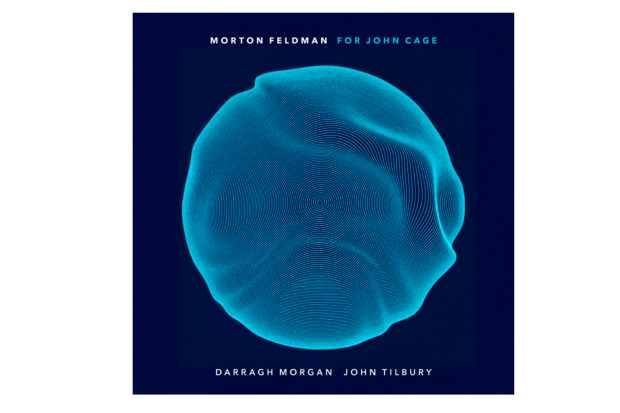
Composer Ian Wilson (Photo: Darko Srećković)
Risks in the Wild
This latest release from the prolific Diatribe label features the music of Ian Wilson and represents the composer’s third album with the label following Double Trio (2009) and Stations (2014). This record is built around woodwind instruments and includes a stellar cast of first-class performers with whom Wilson has worked over the years. Musically, it is a strange mix of genres from jazz to soundscape, a diversity which reflects the composer’s openness to influences from multiple sources as well as his engagement with contemporary political issues.
The stand-out piece on the record is the last number Nox, an atmospheric sultry jazz piece written for the Irish jazz-folk ensemble Yurodny. It opens with an oddly catchy riff in a 13-meter (3+3+2+3+2 over 8) on the double bass, piano and drums which lay down a solid foundation. Over this the other instruments build up a detailed texture of pizzicati, glissandi, tremolandi, trills, chords and other details, forming a fascinating backdrop for two outstanding solos from Mihály Borbély on the tárogató (a Hungarian clarinet-type instrument) and Tom Arthurs on the trumpet. The inventive scoring includes parts for the cimbalom that, along with the tárogató, create an atmosphere that recalls both the folk music of Eastern Europe and the jazz of Tomasz Stańko. The highlight of the piece, however, is the ending when the haze lifts and the ensemble comes together on a short spiky pizzicato motive that propels it to a blistering conclusion over the staggering meter. This piece will make it onto many a jazz fan’s playlist and a full album of such material would be a fascinating prospect.
Also showing the same level of inventiveness – though with more economical means – is MotherFUNK! for baritone saxophone and Boss RC-300 loopstation, a work which despite its dodgy title is a rigorous exploration of Wilson’s idea of ‘evolutionary looping’. In contrast to the conventional use of looping techniques that tend to simply build up a texture by adding successive layers, in this piece each layer is constantly being varied and the texture thickens and thins as material drops out only to appear again transformed at a later stage. The recording is a live performance by Ties Mellema, a long-time collaborator of Wilson’s whose intense energy and concentration comes across abundantly on the recording.
Both of these works will be very accessible to most listeners with their clear melodic and rhythmic content. The rest of the pieces on the album are more ambitious in what they set out to achieve both conceptually and in their exploration of new sounds.
Orator at a political rally
The opening work, Denier, sets up a dialogue between a solo flautist and a quartet of strings (2 violins, 2 cellos) that is intended to reflect the dynamics of a political rally in which an orator whips up the crowd with ‘musical verbiage’. Equipped with this concept, one can imagine the respective roles that the flautist and string quartet are intended to represent but what might initially have seemed like an interesting idea soon turns out to be rather one-dimensional. The material is deliberately banal – aimless empty passagework on the flute versus glissandi or pointillistic pizzicato textures in the quartet for example. There is also little genuine dialectical interplay between the solo flute and the strings as they rarely play at the same time and their material is kept separate for most of the piece.
According to the composer, The emptiness of the ever-expanding universe cannot compare to the void where your heart should be is intended to reflect the ‘actual emptiness of certain political promises and desires in music of meager melodic and harmonic means’. The piece is a barren landscape populated by a mixture of familiar extended techniques (percussive tapping on various instruments, whispery sounds from alto flute and bass clarinet, etc.) which alternate/overlap with long-held pitches on the bass clarinet and interludes from a mangled music box. Some of these timbral combinations are attractive but the material is generally rather featureless and its stop/start character means that it never manages to pull itself into anything more than a succession of brittle textures.
Wild Simone
If contemporary music could be said to have its disadvantaged areas, then the solo woodwind genre would be top of the list. Very few works in this category can truly be said to have attracted the attention of listeners beyond the specialised interest of performers and composers. Wilson’s contribution to the genre, Wild is the Wind for bass clarinet, is a deconstruction of the Nina Simone song of the same time, and those familiar with the song will be able to pick out a few melodic contours here and there. However the ‘deconstruction’ is very ponderous indeed and the piece seems more concerned with exhausting every possible playing technique on the instrument than creating interesting material. At least in part, this would seem to be a symptom of the composer’s generosity in writing music tailored to a particular performer that is probably very interesting to play but makes for tedious listening.
The longest work on the album is also the most ambitious in terms of its political message, dealing with what is undoubtedly the greatest threat of our time – the climate change and the biodiversity crisis. In this work, titled Species Counterpoint, Wilson recorded several soundscapes from the west of Ireland and used them as a sonic canvas for two baritone saxophones, one playing a notated part and the other improvising. According to Wilson, the music is intended to evoke ‘ideas of struggle, alarm and the will to survive’. The nature soundtrack is beautifully recorded and there is some interesting dialogue between the natural sounds and the two baritone saxophones, even if much of the piece sounds like two free jazz enthusiasts let loose on a nature reserve.
After listening through the album, there is the sense that the more abstract and conceptual the idea behind a piece, the less interesting it ultimately turns out to be. On the other hand, one has to admire the risks Wilson is willing to take and a certain unevenness is an inevitable product of this approach. When he does hit the mark, the results are extremely good, but a little more curatorial consideration – possibly from the record label – might have resulted in an even stronger record.
Wild is the Wind by Ian Wilson is released on Diatribe. To purchase a limited edition six-panel digipack CD, visit: https://shop.diatribe.ie/album/wild-is-the-wind
Click on the image below to listen.
Published on 9 December 2020
Adrian Smith is Lecturer in Musicology at TU Dublin Conservatoire.















